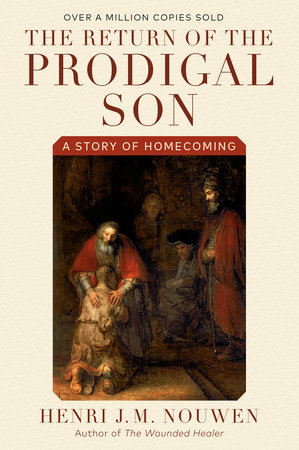The Return of the Prodigal Son by Henri Nouwen – A Short Book Review
Henri Nouwen has been one of my favorite authors since
college. Although popular, I had not read his The Return of the Prodigal Son before.
At first, I was skeptical of a book about someone’s reflections
on a painting taking a little more than a hundred pages. How could such a simple
subject take up so much time? Would it be dry historical information about the
artist?
What the book really is about is the inner life of Nouwen as
he saw himself in the painting. From his personal retrospection, the reader can
make applications for their own life.
There are small bits of information in the book about
Rembrandt and how his life produced the painting. Overall, they are asides which serve to help
the reader identify with the different characters in the painting. This self-identification
proves to be the real heart of the book.
Nouwen uses his own experiences to draw us into a realization
that we are meant to see ourselves as the prodigal son, the elder brother, and
the father. Even the onlookers make brief appearances as those who come close
to the touching scene but do not interfere or extend love themselves.
Nimbly, Nouwen brings believers into an implicit realization
of the necessarily gospel intent of the painting. Whatever baggage or other needs Rembrandt
brought to the painting, it takes on its own message due to the subject
matter.
Here, I found myself amazed I had never directly connected
Luke 9:23 (cf. 14:27) with the story of the Loving Father (also known as the
Prodigal Son – Luke 15:11-32). In a
section where Jesus makes it clear God’s nature seeks out the lost people of
this world (i.e. parables of the Lost Sheep 15:1-7 and Lost Coin 15:8-10) and does whatever is necessary to make friends
of lost people (parable of the Shrewd Manager, Luke 16:1-13), the son clearly
tells his father that he is as good as dead. This is a fact has been obvious to
almost anyone studying or reading the parable for some time. However, the
direct connection lost on me was the death to self and the willingness of the
father to take on this death to self.
This book makes it clear believers are to become like the
father. As the father willingly, and through Jesus’ example, we are to die to
self in order to make love known. This is what it means to extend love like the
father in the story.
Nouwen shows how we often want to be like one of the sons
because we can be forgiven for our wrong actions and understood. After all, who hasn’t sinned rebelliously or
cast judgment on other people?
In contrast, taking on the role of the father in
the story means we will be fundamentally misunderstood and wronged. I
personally heard Jesus’ words to die to self in a whole new way in this
context.
As usual, Nouwen’s work is both humble and profound. Much knowledge
can be secured in this short work for those who approach it with the right
attitude.
I ended up reading this book alongside the Gospel of Luke, and
it helped me to see new richness in the scripture. I would highly encourage reading
this book if you are looking for something with easy prose which may also touch
your heart.




Comments
Post a Comment
Thanks for your comments. As soon as your comment has been screened and approved it will appear. Please remember that no hateful written speech, trolling, or advertising will be allowed.